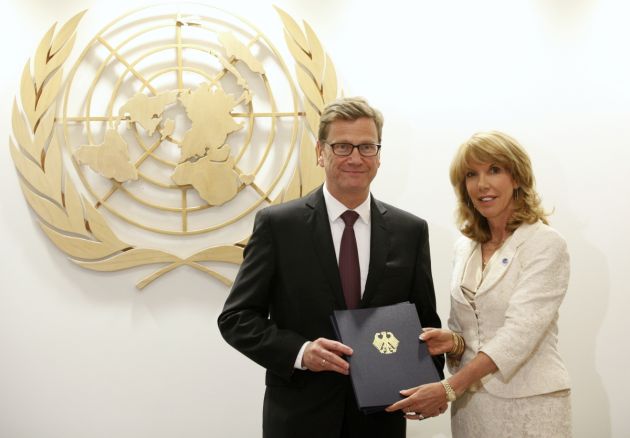Pope urges ambassadors to work for reduced arms trade

Pope Francis has spoken out against the arms trade and proliferation of weapons to seven new ambassadors presenting their credentials at the Vatican urging efforts at a reduction in weapons commerce.
"Everyone talks about peace," Francis said Thursday; "everyone claims to want it, but unfortunately the proliferation of weapons of every type leads in the opposite direction.
"The arms trade has the effect of complicating and distancing us from a solution to conflicts, all the more so since it takes place to a great extent outside the boundaries of the law."
The Pope was receiving the credentials of ambassadors Pierre Yves Fux of Switzerland; Rudolf P. von Balimoos from Liberia; Nega Tsegaye Tessema, Ethiopia; Nasreldin Ahmed Wali Abdeltif of Sudan; Margaret Ann Louise Jobson, Jamaica; Claudinah Ntini Ramosepele, from South Africa; and India's Mysore Kapanalah Lokesh.
"We can unite our voices in expressing hope that the international community may make new, concerted and courageous efforts against the proliferation of weapons and to promote their reduction," said the pontiff.
Japan became the 32nd country to join the Arms Trade Treaty (ATT) aimed at regulating the global flow of conventional arms, for which both the Catholic Church and the World Council of Churches are campaigning.
Ambassador Motohide Yoshikawa presented the instrument of ratification at United Nations headquarters in New York in the presence of U.N. High Representative for Disarmament Affairs Angela Kane.
Kane welcomed Japan's entry into the treaty, which requires the participation of 50 countries, expressing hope that it will encourage more U.N. members to ratify it so that it can take effect, The Japan Times newspaper reported.
"Monitoring the flow of conventional arms will have a major significance in deterring insurgencies and conflicts as much as possible in the world and thereby limiting damage," Yoshikawa told reporters.
The treaty bans States from engaging in the export, import, transit and brokering of tanks, attack helicopters, combat aircraft, warships, missiles and small and light weapons if there are risks that they might be used to commit terrorism or attacks against civilians.
France, Germany and Britain have signed the treaty, but China, Russia and the United States have not.
